On August 22, 2025, children were not simply painting but learning to feel the colours of their native country with their hearts, transforming blue and yellow into symbols of peace, hope, and unity. The aim of the event was to help children experience positive emotions connected with Ukraine through art and to strengthen feelings of pride and patriotism, which are extremely important for psychological resilience in difficult times.
The art therapy session “The Colours of My Heart” was part of a series of events within the international Erasmus+ KA220-ADU project “TRUST” – Trauma of refugees in Europe: An approach through art therapy as a solidarity program for Ukraine war victims (Grant No. 2024-BE01-KA220-ADU-000257527).
The project title is decoded as follows:
TRUST
T – Trauma
R – Refugees
U – Ukraine
S – Solidarity
T – Therapy
The project is co-funded by the EU and led by the Centre Neuro Psychiatrique St-Martin from Belgium, in partnership with the National University “Yuri Kondratyuk Poltava Polytechnic” (Ukraine), Greek Carers Network EPIONI (Greece), Fondazione Don Luigi Di Liegro (Italy), Lekama Foundation (Luxembourg), EuroPlural Project (Portugal).
The moderators of this art therapy session were Lesia Klevaka, Ph.D. in Pedagogy, Acting Head of the Department of Psychology and Pedagogy, Associate Professor; Maryna Teslenko, Ph.D. in Pedagogy, Associate Professor of the Department of Psychology and Pedagogy; and Viktoriia Shevchuk, Ph.D. in Psychology, Associate Professor of the Department of Psychology and Pedagogy.
The session began with a warm circle of introductions, “Sunray” – a safe ritual that is key to creating an atmosphere of trust. Children, passing a soft blue-and-yellow heart to one another, shared their associations with Ukraine: “peace”, “sun”, “family”. From the psychological perspective, this simple act carries great power: physical contact with an object (“the heart”) helps children ground themselves and focus. At the same time, the circle creates a sense of equality and safety where every voice matters. Speaking out positive associations sets the emotional tone of the session, activating bright and resourceful images.
In the introductory discussion, the trainers, together with the children, not only recalled the meaning of state symbols but also carried out deep therapeutic work. For a child’s psyche, which thinks in images, abstract concepts such as “state” or “patriotism” require concrete, warm content. During the conversation, the blue colour turned into a peaceful sky and clean water, while yellow became the sun, wheat fields, and warmth. This was not just a lesson, but a process of anchoring – attaching positive, life-affirming meanings to national symbols. In conditions when reality around may be associated with anxiety, such work helps a child form the image of their country as a place of safety, life, and hope.
The creative part of the session was structured on the principle of transition from the individual to the collective, which is essential for shaping both personal identity and a sense of belonging to the community. At first, children created their own small flags. This individual act of creativity gave each child a sense of agency and control: “I myself can create the symbol of my country”. Later, all the flags were joined into a large “meadow of flags,” which became a powerful metaphor of unity and shared strength, where everyone’s contribution is visible and valued.
The culmination was a collaborative effort to create a large map of Ukraine featuring blue-and-yellow threads. Each child, in turn, glued a thread, symbolically weaving their love and care into the image of their native land. In art therapy, collective projects hold extraordinary power: they not only develop communication and interaction skills but also give a deep sense of belonging. Creating something whole together clearly demonstrates that together one can overcome any difficulties and make something great and beautiful.
An equally emotional moment was the exercise “The Colours of My Heart”, where children decorated paper hearts. The heart is a universal symbol of feelings. By giving a child the opportunity to fill it with national colours, the art therapist creates a safe container for their love, warmth, and hope. When these hearts were combined into a joint collage – “Wreath of Ukraine” – children visualised the idea that the strength and beauty of the country is made up of the love of each of its little citizens. The wreath, as a symbol of protection and infinity, reinforced this sense of unity.
The session ended with a sincere circle of wishes. To the question of what each gives to Ukraine from their heart, the most important words were heard: “peace”, “friendship”, “happiness”. This was not just a ritual but an act of creating hope – verbalising and directing positive thoughts into the future. Such activities prove that art therapy is a powerful tool not only for developing imagination but also for building psychological resilience, a sense of unity, and a deep, conscious love for their indomitable Motherland among the youngest Ukrainians.
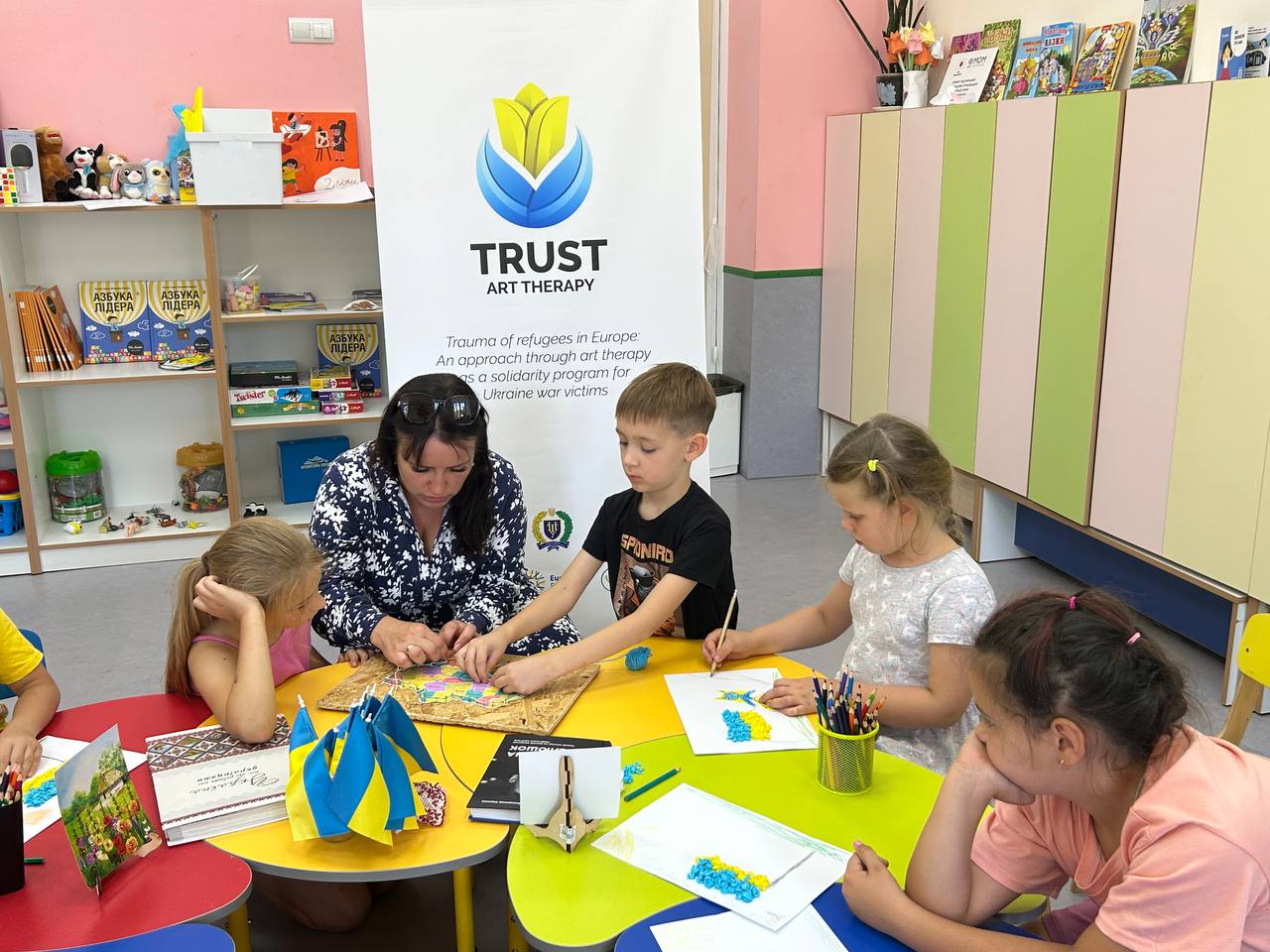
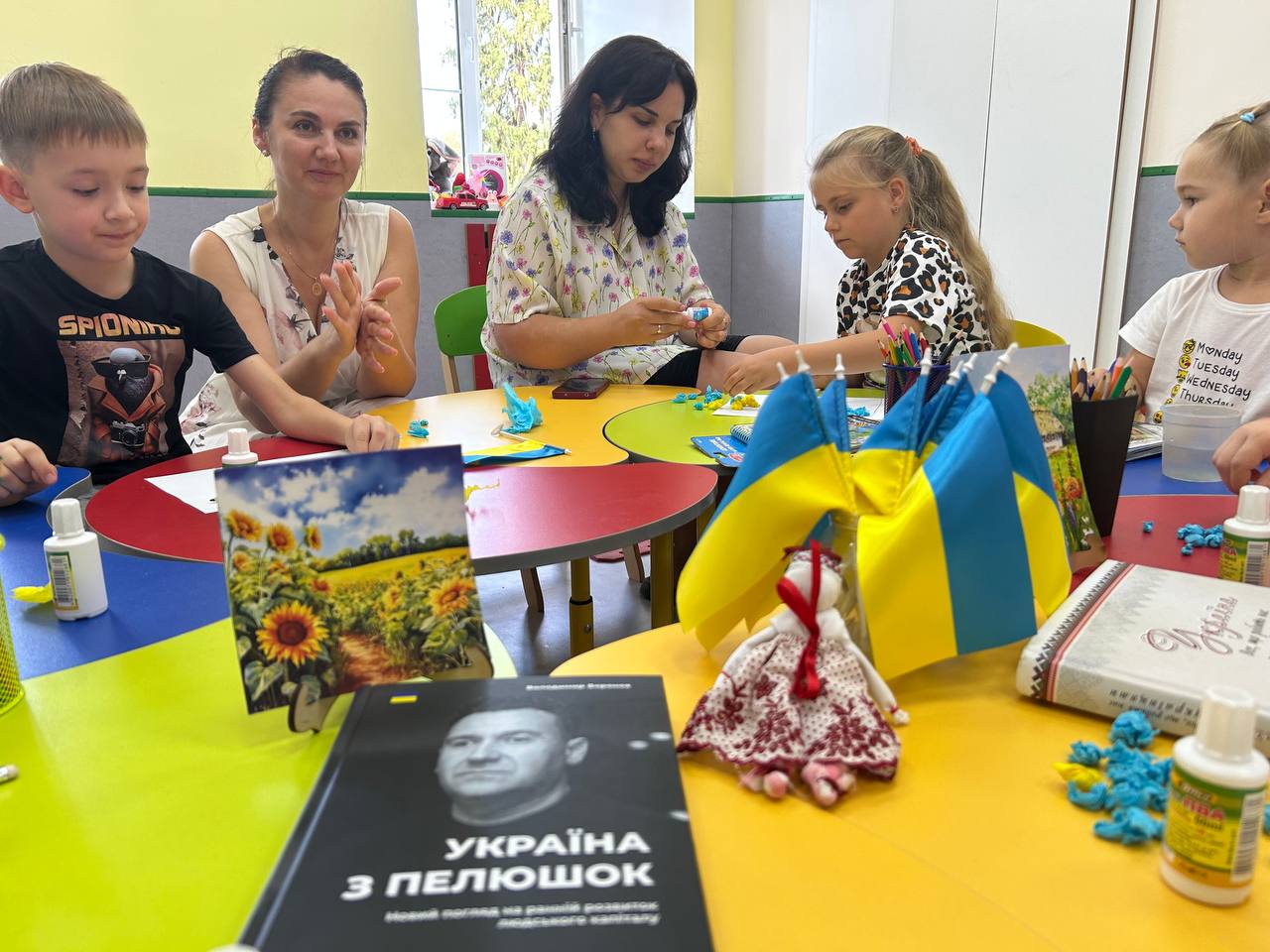
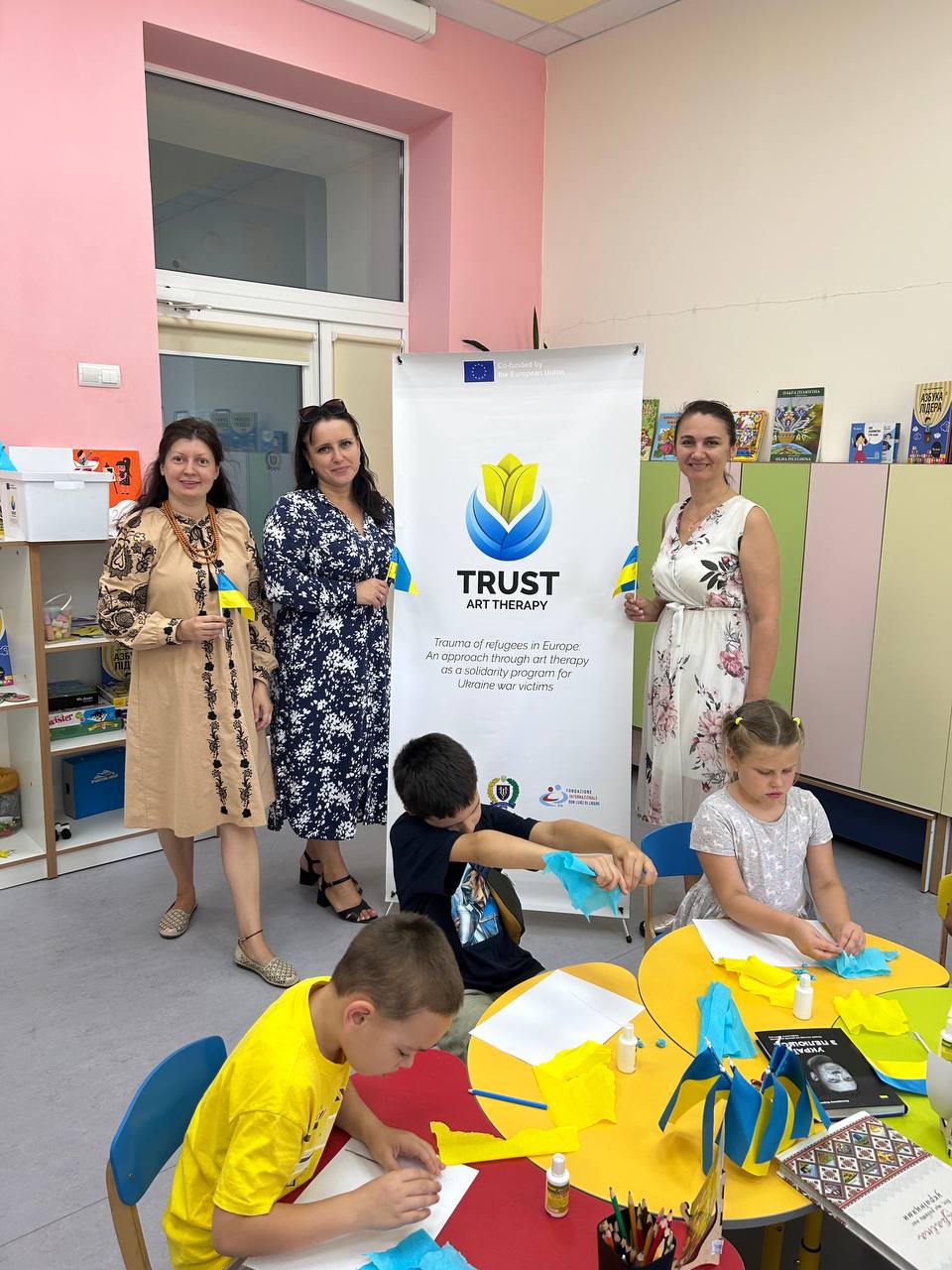
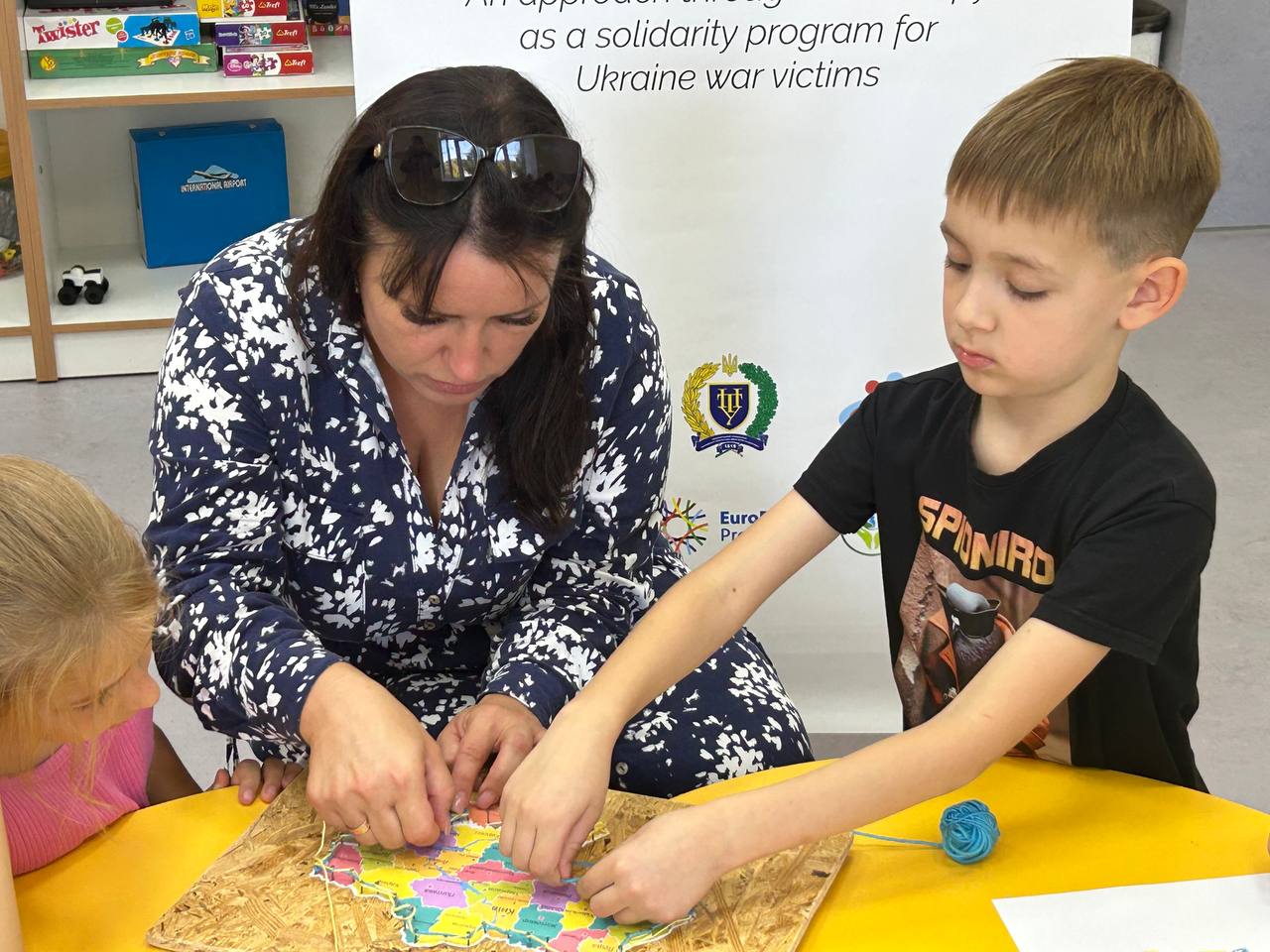
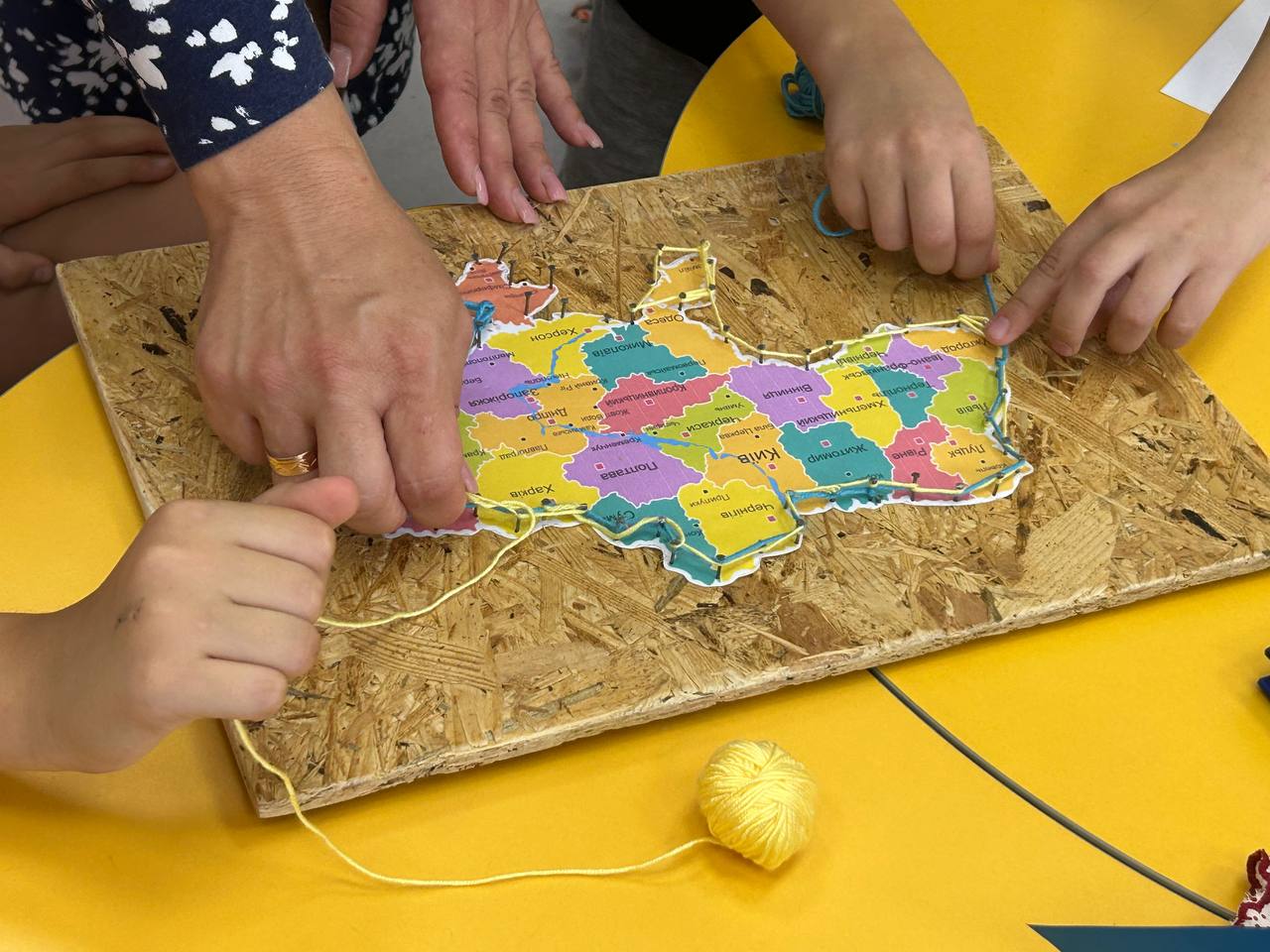
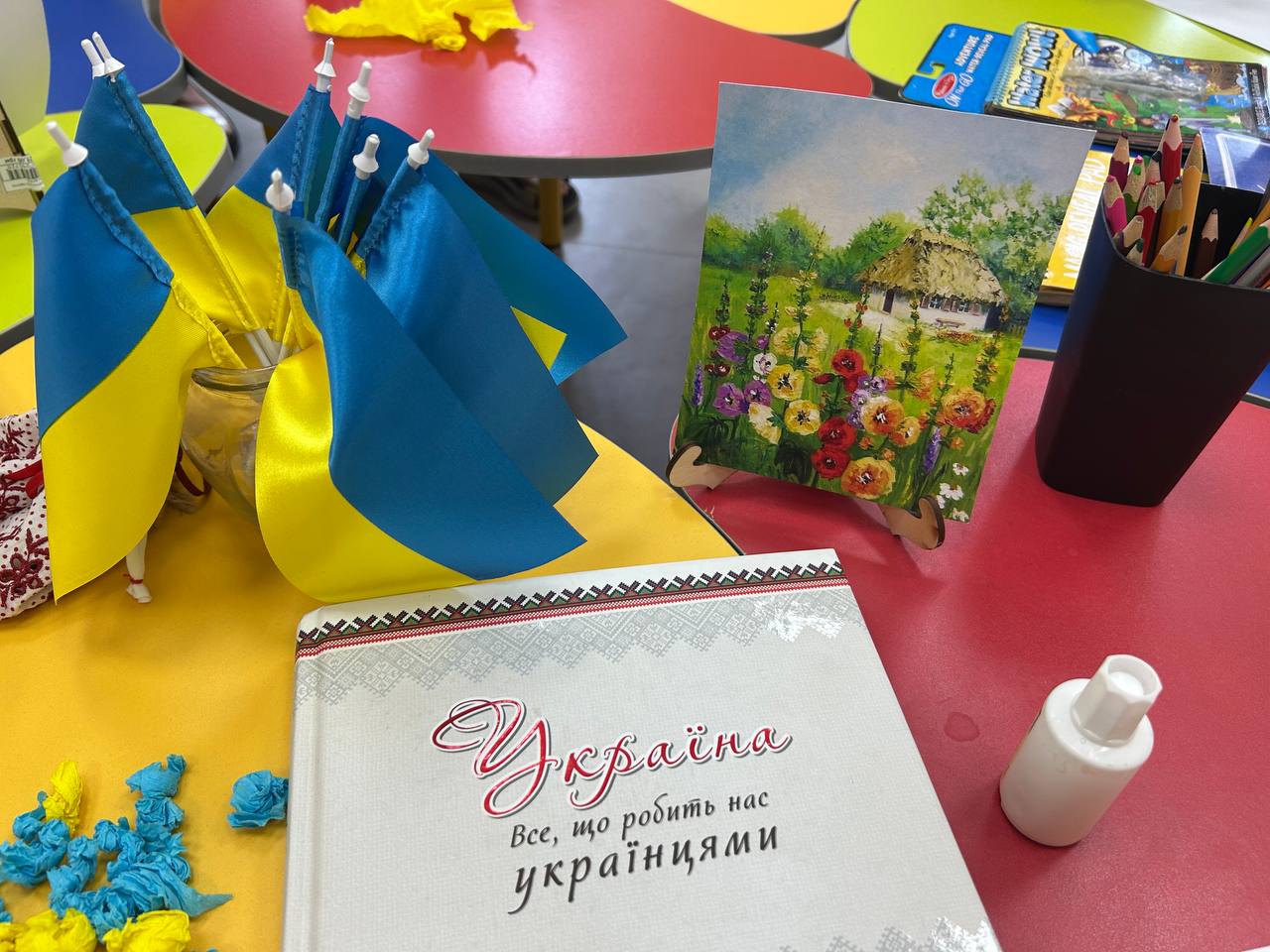
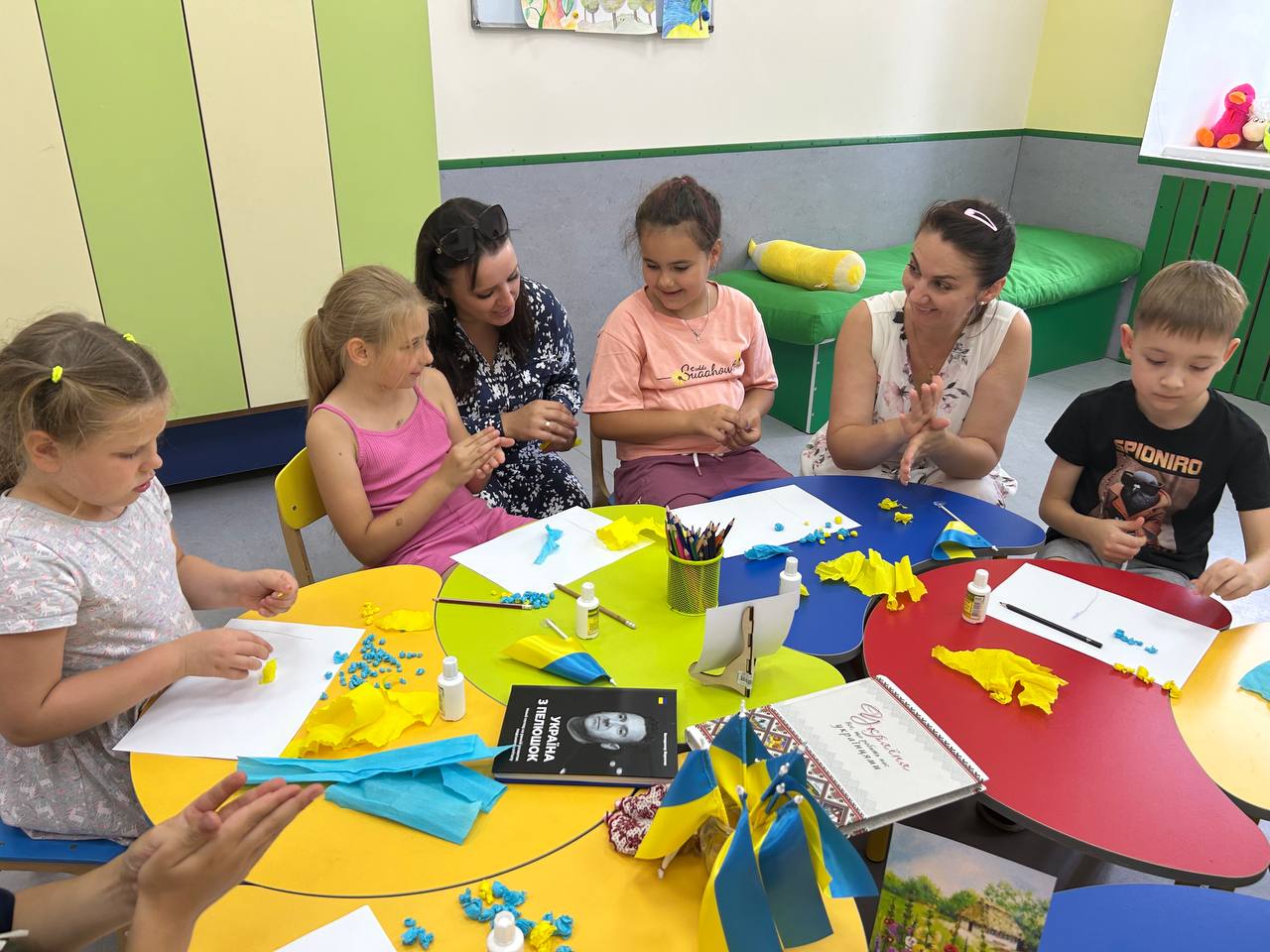
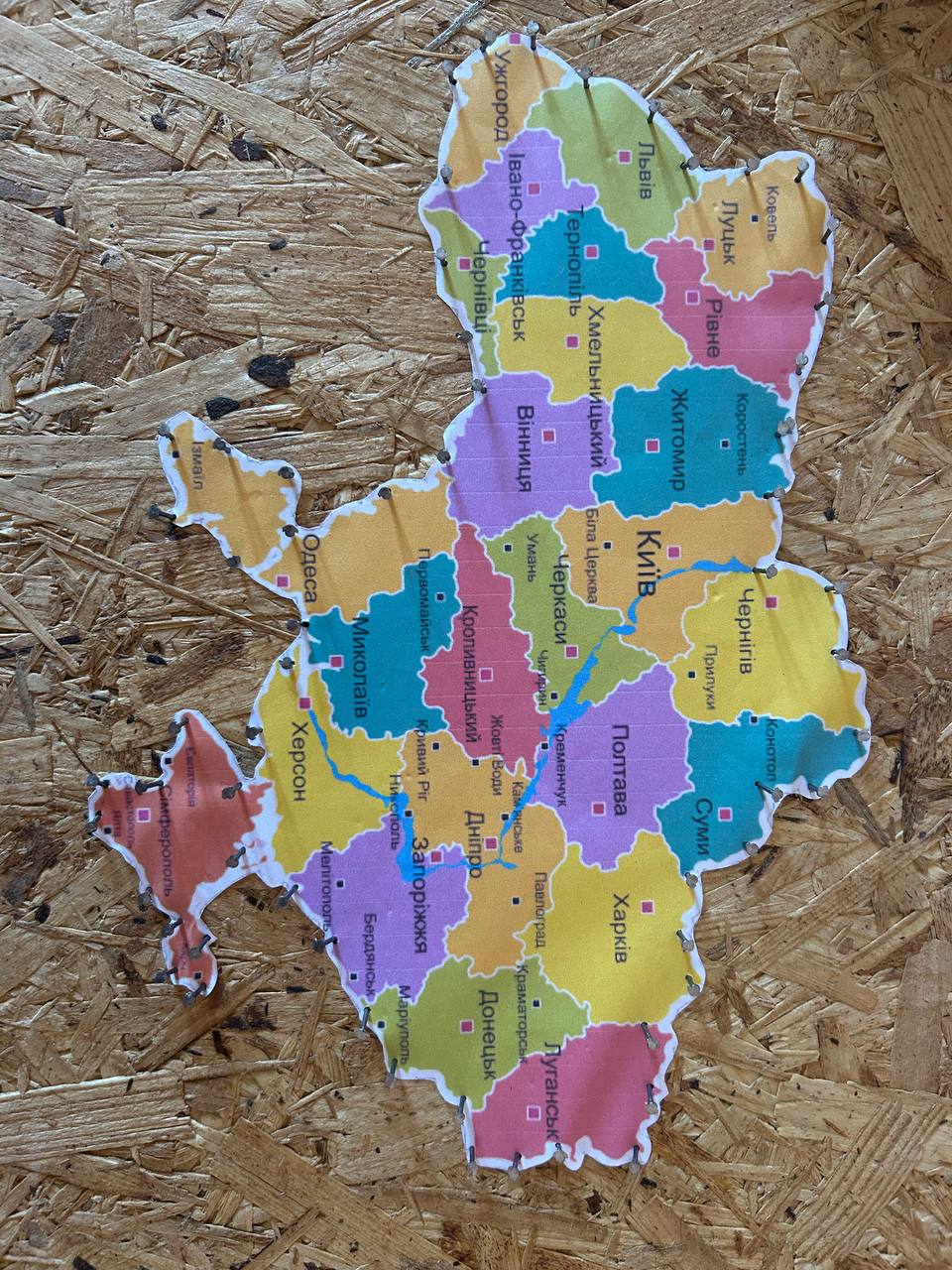
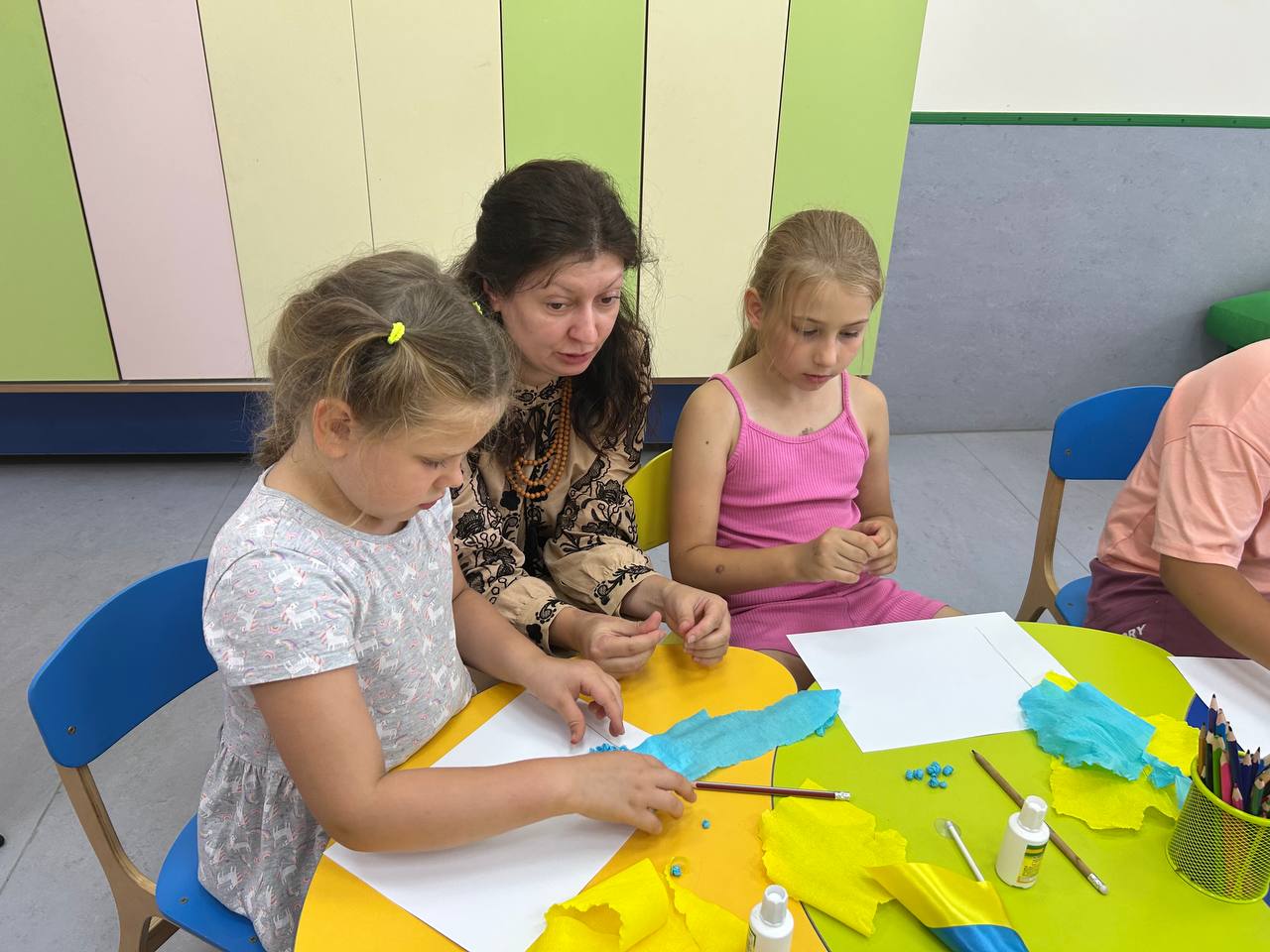
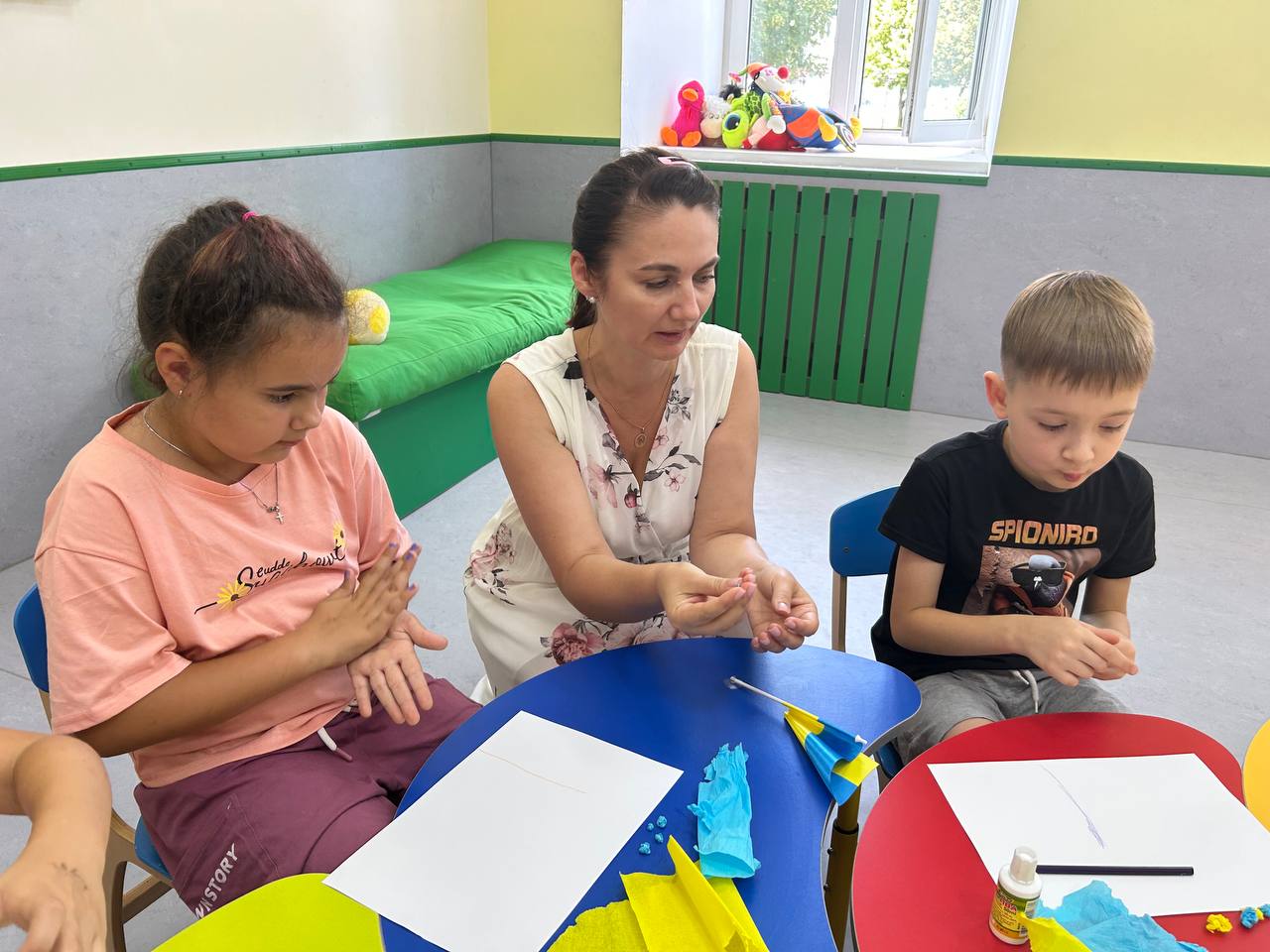
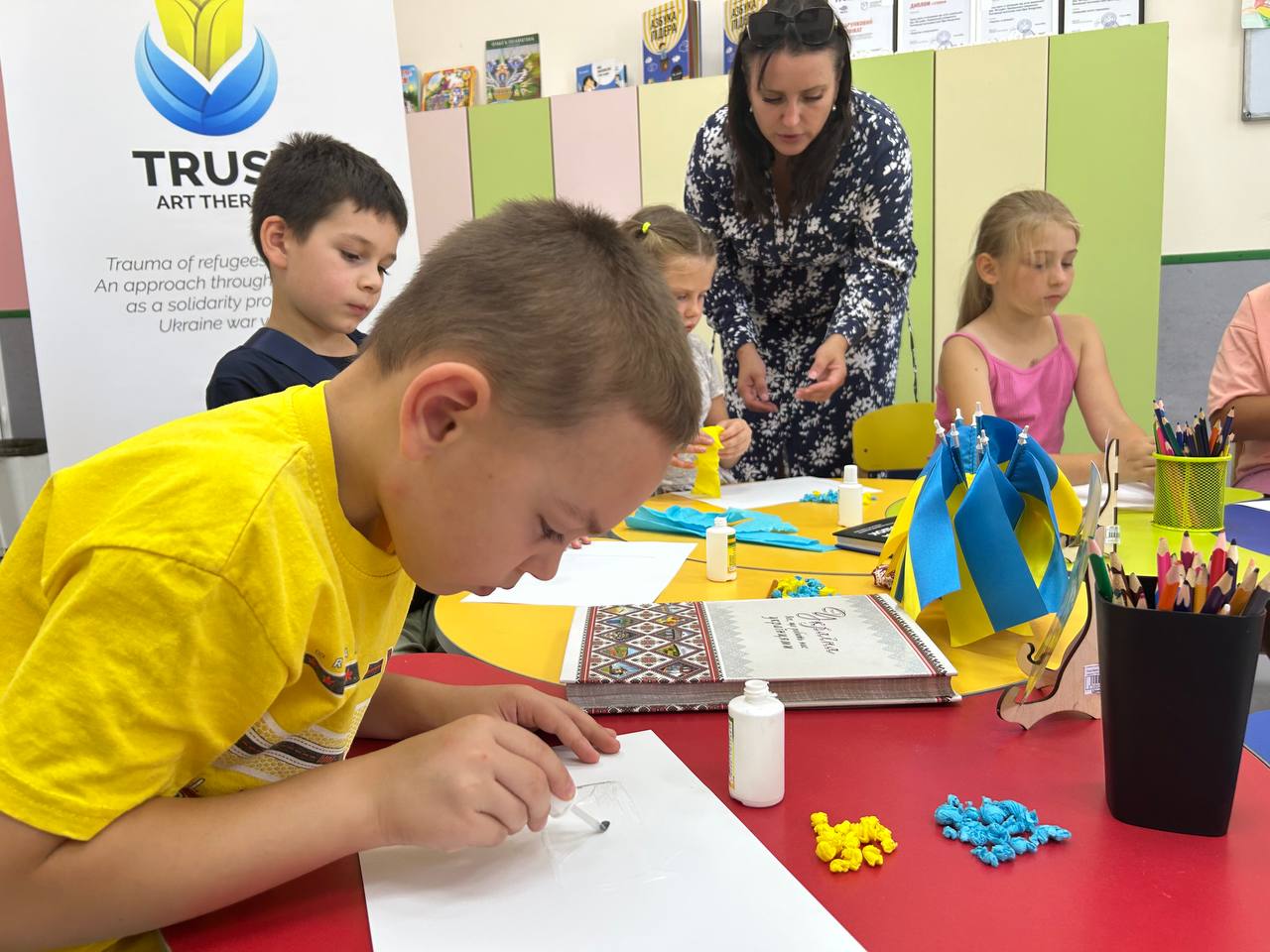
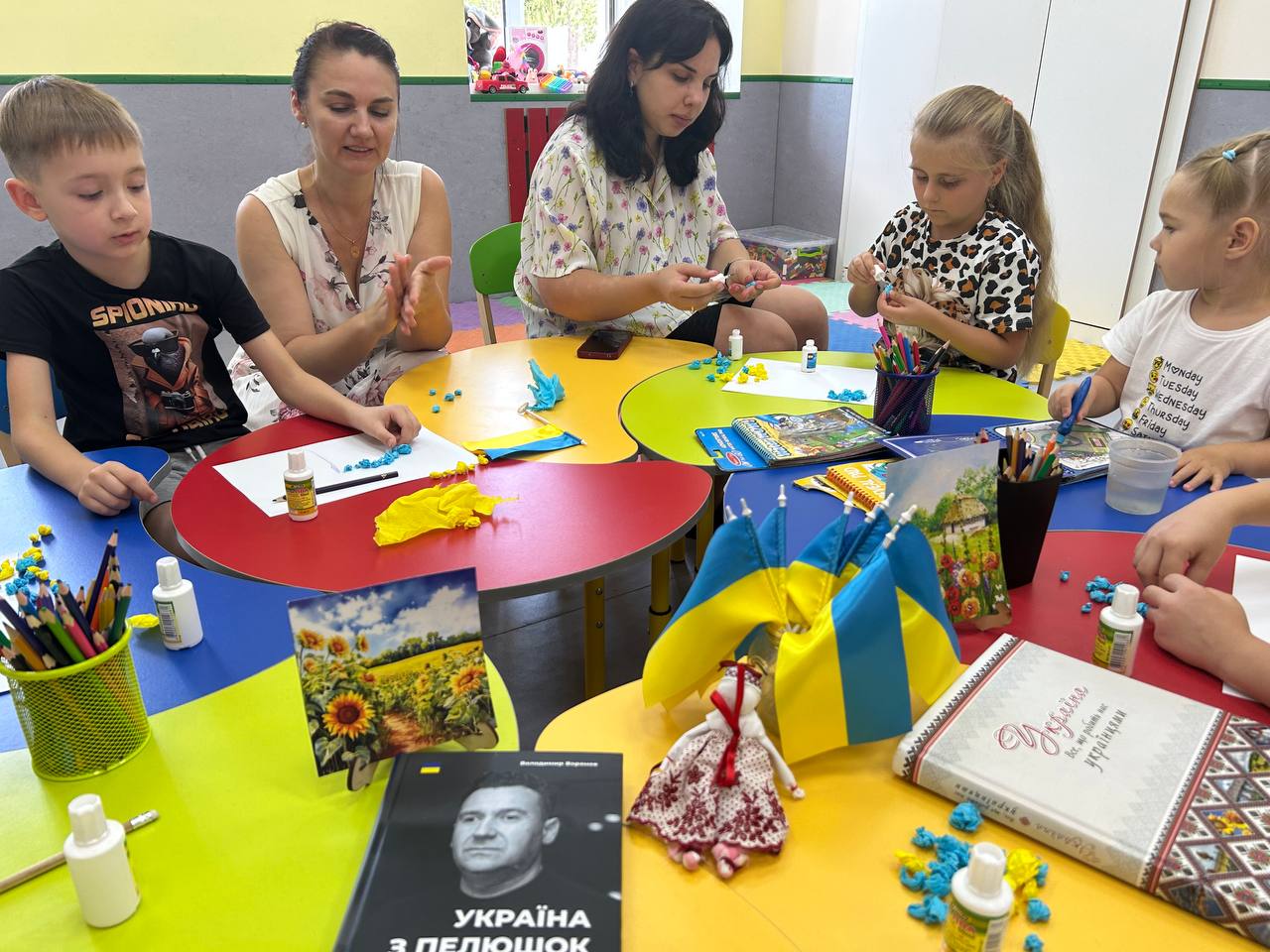
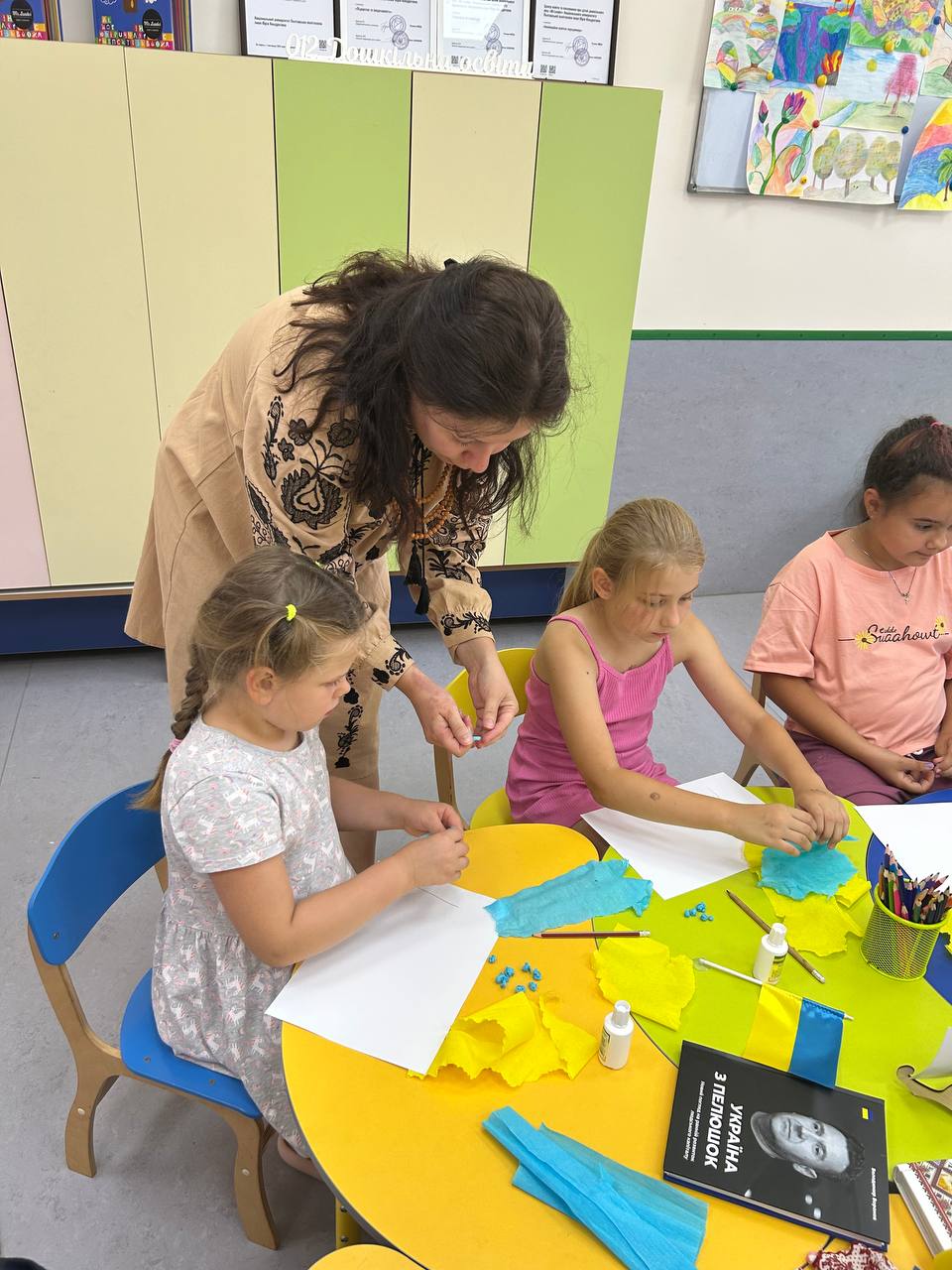
Thanks to the international partners of the project, Poltava Polytechnic continues to create this vital space for healing. More sessions lie ahead, for creativity is a step towards recovery even in the darkest times.
As a reminder, faculty members of Poltava Polytechnic are eligible to participate in academic mobility and internship programs. Students can study abroad through Erasmus+ credit academic mobility grant programs for a semester or a full academic year at leading universities in Austria, Greenland, Denmark, Estonia, Finland, France, Germany, Greece, Ireland, Italy, Latvia, Lithuania, Luxembourg, the Netherlands, Norway, Poland, Portugal, Romania, Slovakia, Spain, Sweden, and the Czech Republic.
For more detailed information on current internship, teaching, and academic mobility programs abroad, please get in touch with the International Relations Office (office 213-C, interoffice@nupp.edu.ua) or the coordinator of international activities at the National University “Yuri Kondratyuk Poltava Polytechnic” – Anna Pavelieva, Ph.D. in Philology, Associate Professor of the Department of Germanic Philology and Translation (email: kunsite.zi@gmail.com, phone: +38-(095)-91-08-192).
Media Centre of
National University “Yuri Kondratyuk Poltava Polytechnic”



